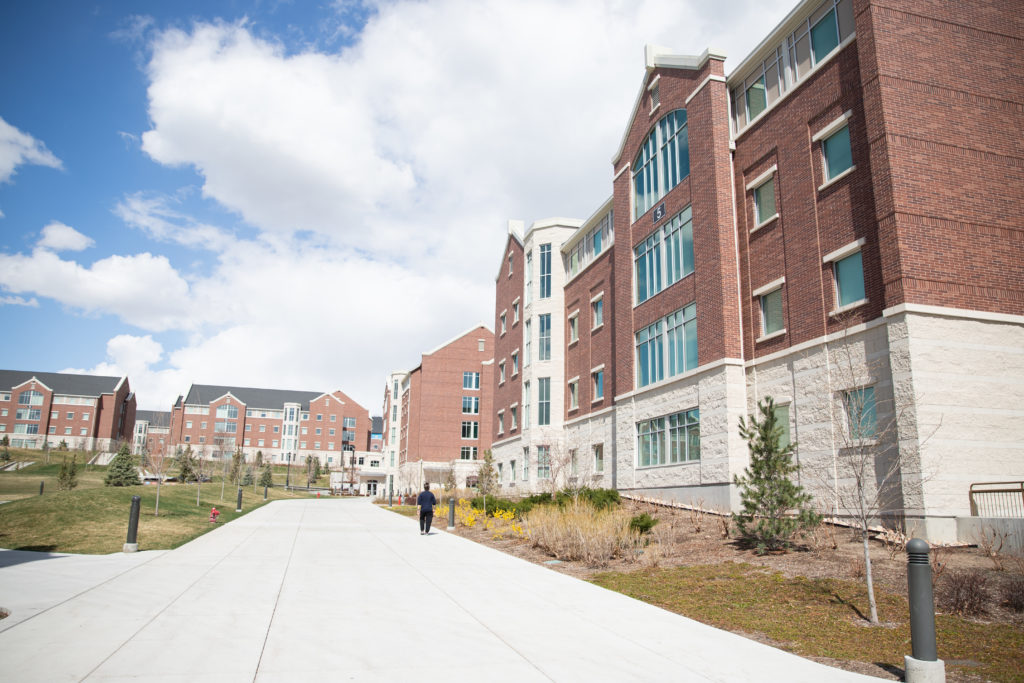
Since implementation in Fall Semester of 2022, changes to the BYU Student Housing Policy have provided more options for a majority of undergraduate students, while freshmen and transfer students are still required to live in BYU-contracted housing.
Some of the consequences of the policy have included students learning to closely review contracts’ terms and fees, as well as an improved interest and understanding of tenant rights, said Pat Newman, manager of BYU Off-Campus Housing.
The policy changes were made in order to provide students with more options for housing and help off-campus landlords, according to Student Life Vice President Julie Franklin in the original announcement.
Most students are happy with the changes, Newman said. Students who have completed their first two semesters are able to live in non-contracted housing as long as it meets the sex-separated housing requirement and the students abide by the Honor Code. Newman said students are encouraged to sign contracts in groups to ensure they will have same-sex roommates.
While this provides students with more options, including continuing to live with non-BYU students and the possibility of living farther away from campus, Newman said the vast majority of students have continued to live near BYU.
Transfer students continue to be affected by the changes, as they are required to live in BYU-contracted housing which can be mainly composed of freshmen who may be much younger than transfer students.
Emily Knapp, a sophomore studying biology who transferred from BYU-Idaho to BYU this year, thinks this is “a useless rule” from her perspective as a returned missionary and someone who has already completed three semesters of college.
Knapp was unaware of the policy at first and lived the entire year in non-contracted housing. Toward the end of the year she was notified by the school that she was in exception of the policy, and filled out a petition to continue living in non-contracted housing, which was approved.
Generally, Newman said that most students have complied with the policy with a smaller group successfully petitioning for exemption as Knapp did. Petitions for release from the policy may be submitted online.
Freshmen are also significantly affected by the policy. Caelyn Hughes, who was an incoming freshman during Fall 2022, enjoyed her experience living in BYU-contracted on-campus housing. While originally if she had been able to live in non-contracted housing she might have chosen differently, she said she is happy with her experience.
Trying to find housing after completing her first two semesters was much more difficult, Hughes said, because there was a rush for students to get non-contracted housing and it was a lot more work to evaluate options. It is cheaper, however, and Hughes feels a much stronger sense of community in her current housing situation.
Isaac Carpenter, another freshman in Fall 2022, said it was easy to find BYU-contracted on-campus housing when he decided two days before the semester that he wanted to move away from home. Carpenter completed a mission for The Church of Jesus Christ of Latter-day Saints before his freshman year, so he was 20 years old instead of a typical 18-year-old freshman. Carpenter said having to live with only freshmen did create some social differences between the 18-year-olds and the older returned missionaries.
“A lot of the younger freshmen hung out with each other and then a lot of the RMs hung out with each other, there wasn’t really like a kind of in-between there,” Carpenter said.
He was not bothered by the different social groups, however.
Carpenter and Hughes both had overall positive opinions about the housing policy. Hughes said it helps to have everyone in the same boat when you arrive at BYU, and there are additional supports provided in on-campus housing through resident assistants that can help the younger students.
“I think it just makes it available for everyone to do what they want,” Carpenter added. “If you can’t find housing on campus, then you can still move in somewhere nearby. So I think that helps.”
The Off-Campus Housing Office appreciates the students who have sought clarification on the policy and is in the process of collecting more information from students about their experience, according to Newman. Possible changes to the housing program in the future may include more BYU-contracted properties to meet the demands of BYU students.
Students can contact the Off-Campus Housing Office for further questions about the housing policy.




